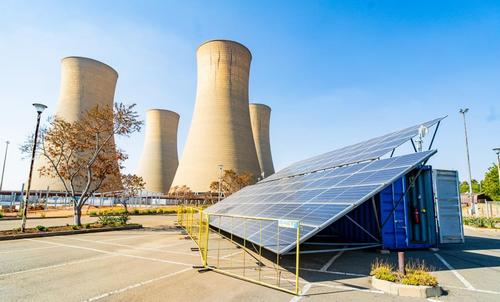Business
Freedom to Transform: Why South Africa’s Just Transition Must Be Built on Social Dialogue

Each year, Freedom Day reminds us of the power of inclusive nation-building. It marks the moment in 1994 when millions of South Africans cast their votes for the first time in a democratic election, ushering in a new era grounded in justice, equality, and shared responsibility.
Now, 31 years later, South Africa stands at another historic crossroads—this time, in response to a new kind of challenge: the climate crisis. The transition to a low-carbon economy isn’t just an environmental imperative. It’s an opportunity to reshape South Africa’s economy, society, and democratic commitments.
A Just Transition Rooted in Freedom
The Just Transition is more than a technical policy pathway. It’s about ensuring that the move away from fossil fuels towards sustainable energy is fair, inclusive, and transformative. The stakes are high—not just for carbon emissions, but for social justice, job creation, and economic stability.
To succeed, this transition must be built on robust and meaningful social dialogue—just like the democratic Constitution that defined our post-apartheid future. Dialogue was at the heart of our freedom then, and it must be central to our progress now.
Social Dialogue as a Tool for Justice
The Presidential Climate Commission (PCC) has embraced this challenge, emphasising that a just transition requires all voices—particularly those from historically marginalised communities—to be heard and to influence decision-making.
Procedural justice is a core principle of the PCC’s Just Transition Framework. It calls for inclusive and continuous engagement, not one-off consultations. This means reaching into communities, workplaces, and schools to ensure that every South African has the chance to participate in shaping the future.
The approach must be localised—culturally and linguistically tailored to community contexts. Youth, women, informal workers, rural populations, and labour unions must all be meaningfully engaged.
Why the Private Sector Must Lead with Purpose
Nation-building doesn’t rest on the shoulders of government alone. Businesses and investors have a critical role to play. From manufacturing to mining, the private sector must embed sustainability into operations—not just as a risk mitigation strategy, but as a commitment to long-term resilience.
Through co-designing solutions with workers and local communities, businesses can unlock innovation, support economic diversification, and enhance stability in vulnerable regions. This is how private interests and public good intersect in a meaningful way.
Labour’s Role: From Resistance to Leadership
South Africa’s trade unions have long fought for workers’ rights. In the just transition, they are pivotal in ensuring decent work, fair wages, and safe working conditions are not sacrificed in the name of climate progress.
Unions must engage in social dialogue not only as watchdogs but as architects of a just, inclusive economic future.
Freedom Day: A Reminder and a Call to Action
Freedom Day is not just about looking back. It’s a reminder that democracy must constantly be renewed through participation. It calls on every citizen, institution, and industry to act—ensuring that no one is left behind in South Africa’s transformation journey.
A low-carbon future is not a luxury. It’s a necessity. But whether it becomes a path of shared prosperity or deepened inequality will depend on how we manage it—and who gets to shape it.
A Nation Built Together
As we commemorate Freedom Day, let us remember that real freedom means shared responsibility. It means engaging with courage and compassion in shaping a sustainable, equitable society.
Through meaningful dialogue, collective action, and visionary leadership, South Africa’s just transition can become a powerful tool for nation-building—one that honours the promise of 1994 and builds a resilient future for generations to come.
{Source: IOL}
Follow Joburg ETC on Facebook, Twitter , TikTok and Instagram
For more News in Johannesburg, visit joburgetc.com















